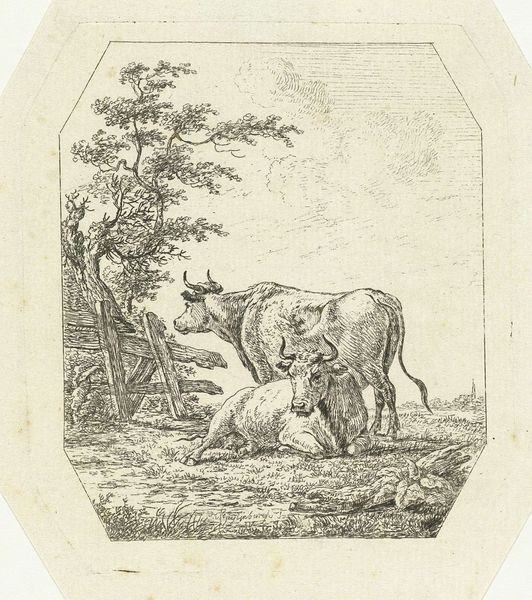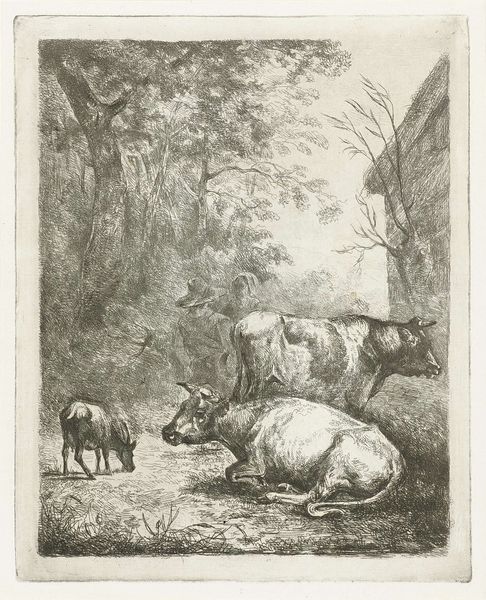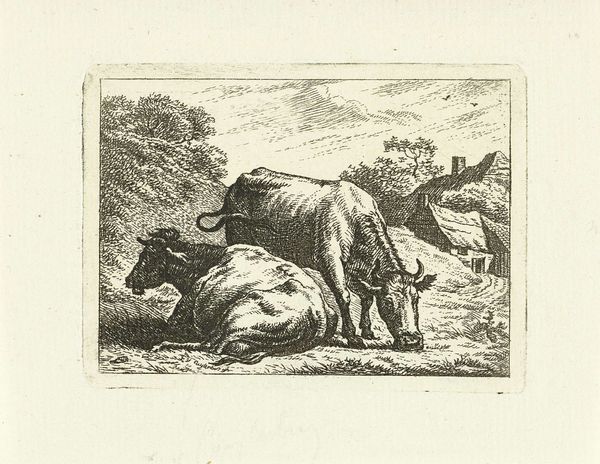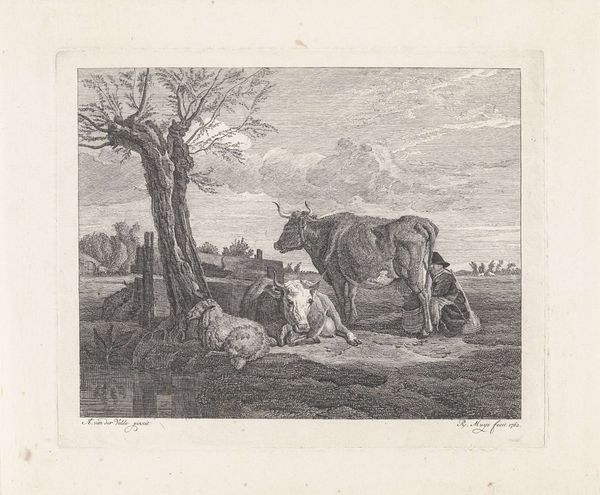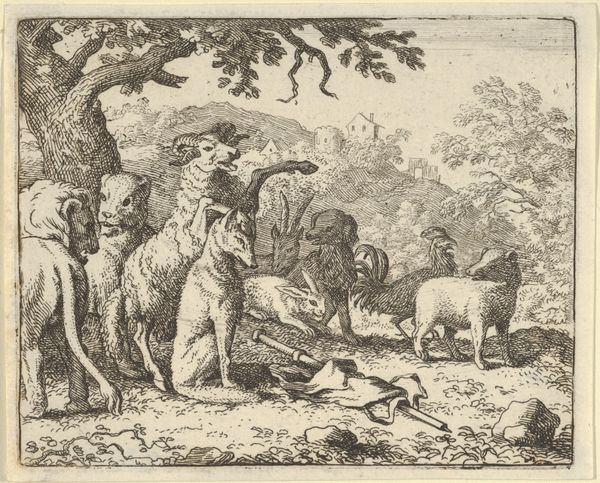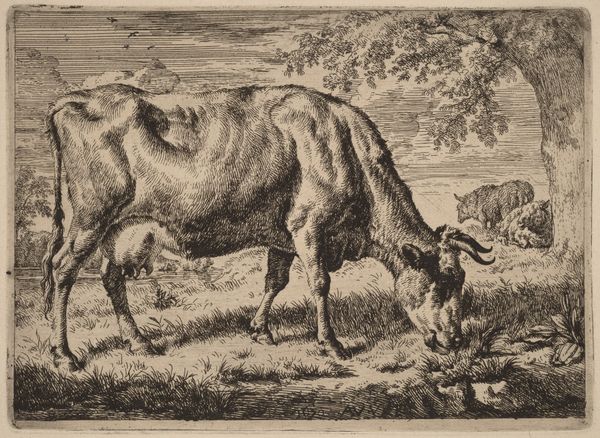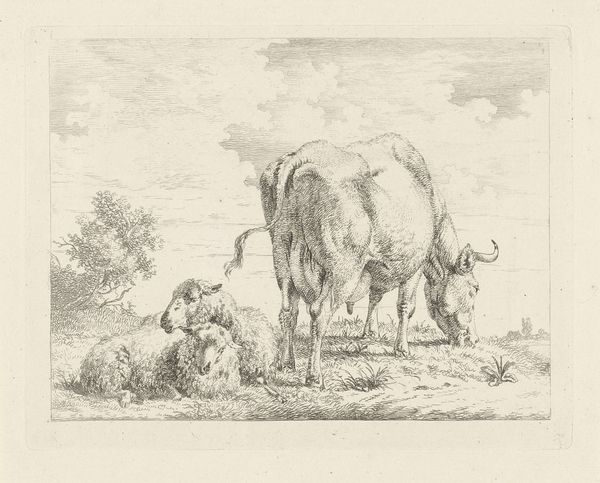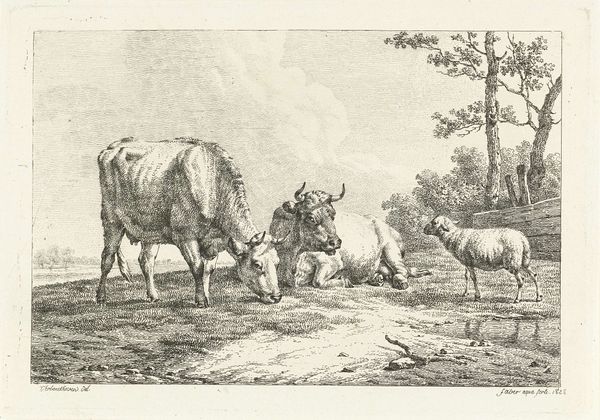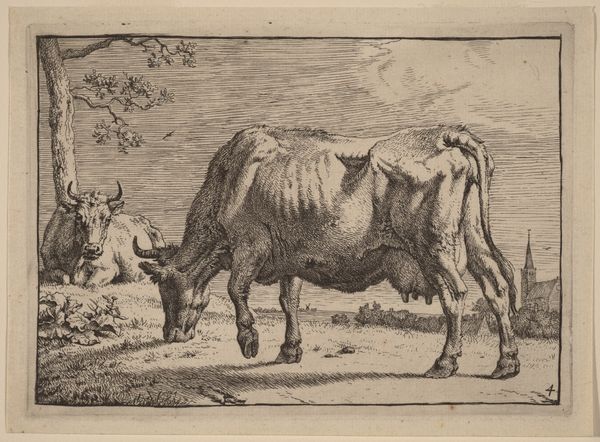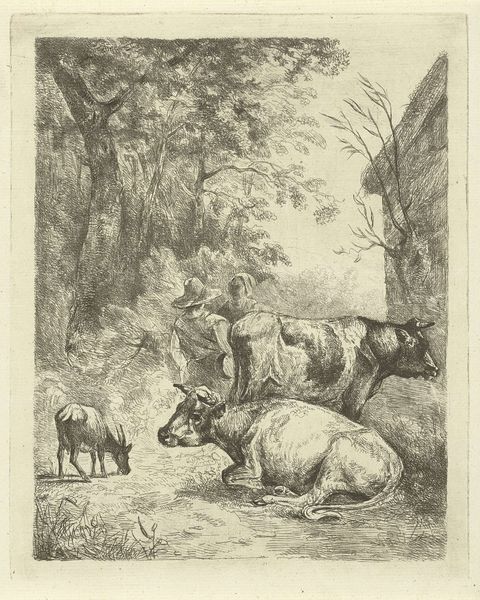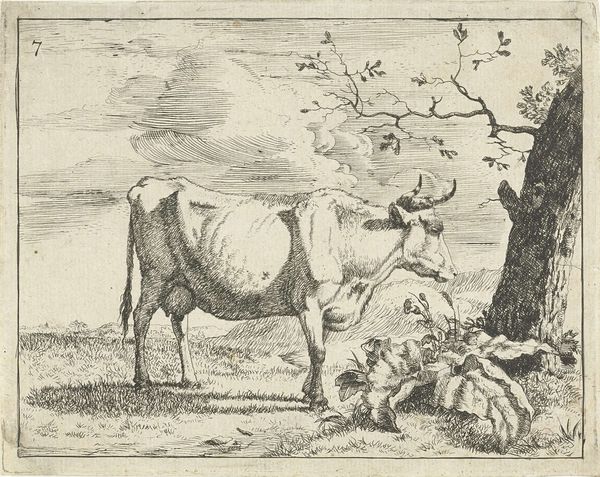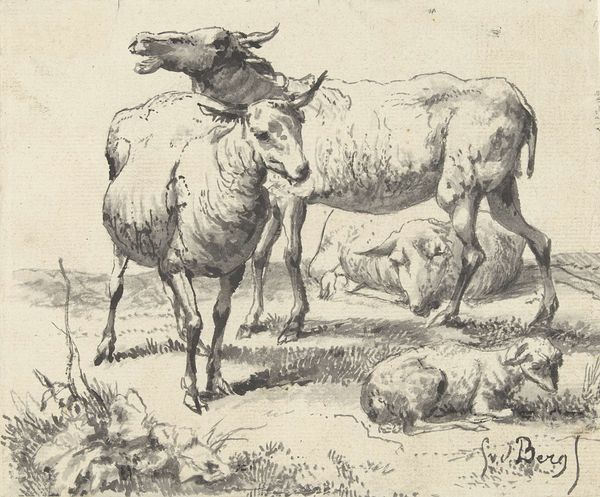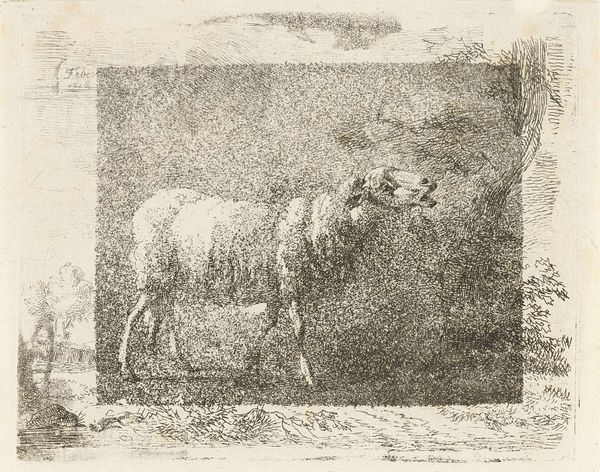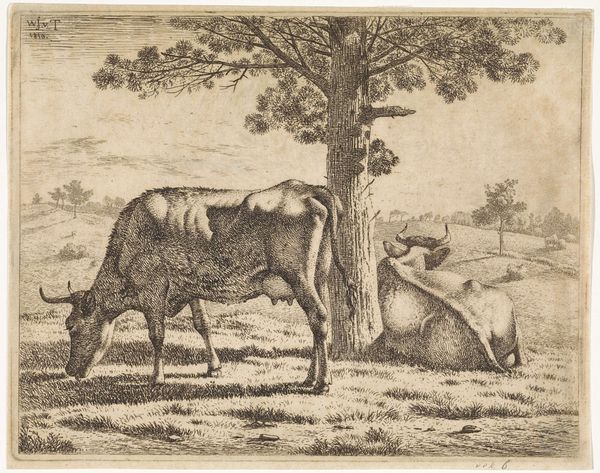
drawing, print, etching
#
drawing
# print
#
pen sketch
#
etching
#
pencil sketch
#
landscape
#
figuration
#
line
#
realism
Dimensions: height 120 mm, width 105 mm
Copyright: Rijks Museum: Open Domain
Johannes van Cuylenburgh created this print of two cows by a fence sometime in the first half of the 19th century. It's an etching, meaning the artist used acid to bite lines into a metal plate, which was then inked and pressed onto paper. Look closely at the linework. See how it varies in thickness and density? This is achieved through careful control of the etching process, building up the image in layers of acid. The resulting texture is quite different from a drawing in ink, with a subtle, almost velvety quality. Think about the world these cows inhabit. It’s an agrarian landscape, where animals represent labor, sustenance, and wealth. Printmaking itself was a burgeoning industry at this time, tied to the rise of literacy, mass communication, and the distribution of images. This etching isn't just a picture of cows; it's a testament to the artistic ingenuity and technical skill, intertwined with the social and economic forces of its time. It challenges the notion of art as something separate from everyday life, reminding us that even the simplest image carries a wealth of meaning.
Comments
No comments
Be the first to comment and join the conversation on the ultimate creative platform.
